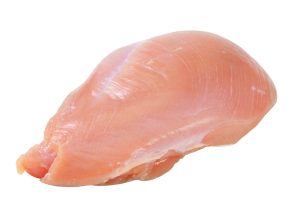There’s a raw food diet, a homemade diet, and many more, but are your dogs getting the balanced diet with the proper amount of essential nutrients they really need? What nutrients do dogs need?
Essential nutrients are the building blocks of your dog’s diet. We do not believe that we really have “competition” in the healthy, homemade food for dogs world. Actually, other non-kibble companies that are similar to ours help in our overall mission to educate pet owners on the truth of what you’re really feeding your dog when you buy commercial dog food.
It is helpful for all pet parents to understand some fundamentals of dog nutrition.
Nutrients your dog needs are comprised of six basic categories:
- Carbohydrates
- Protein
- Fats
- Minerals
- Vitamins
- Water
Let’s dive into each nutritional requirement of dog food.

CARBOHYDRATES
Carbohydrates main role is to supply energy for your healthy dog. During digestion, carbohydrates break down into glucose, which travels through the bloodstream and provides energy to requiring cells.
Carbs are stored in small amounts in your dog’s muscles. They release energy used for short and quick bursts of energy. Carbohydrates that contain fiber also play a healthy roll in digestion and bowel health.
PROTEIN
Protein is required for the overall health of all life stages. It promotes heathy tissue growth, maintenance and repair, and is an important source of calories.
There are 22 essential amino acids. Out of those, your dog’s body only produces 12. For your dog’s health, the others must come from diet. They come from food sources rich in high quality protein such as beef, lamb, and turkey.

FATS
Fats are energy yielding nutrients and the only source that can be stored long-term for future use. If there are more fatty acids than needed, they will convert and into fat and stored in the body.
Essential fatty acids like ones found in fish oil provide the most concentrated source of calories and add flavor and texture to pet food. Omega 3 and 6 fatty acids contribute to a healthy skin and coat, supporting relief from itching, scratching, dry skin, dull coat, and hair loss. Fat also contains vitamins A, vitamin D, vitamin E, and vitamin K.
MINERALS
Minerals are required to aid in nerve transmission, muscle contraction, development of bone and cartilage, regulate blood, maintain water and electrolyte balance, among many others. Some pertinent minerals and macrominerals include:
- calcium
- magnesium
- phosphorus
- potassium
- chloride
- selenium
VITAMINS
Vitamins comprise two major categories: fat soluble and water soluble. Antioxidant vitamins support the immune system, bone and muscle growth, metabolism, brain function, and much more.

Fat-Soluble Vitamins
It is not possible for an excess of these vitamins to be excreted from the body via urine so toxicity levels can be reached more quickly compared to water soluble vitamins. However, the advantage in fat soluble vitamins is that your dog’s system can store them in the liver for future synthesis.
Water-Soluble Vitamins
Water soluble vitamins are absorbed in the small intestines and excess amounts easily leave the body via urination. Because these vitamins cannot be stored, adult dogs, older dogs, and growing puppies need daily portions of each.
WATER
Water is the most important nutrient. It regulates body temperature, maintains hydration and fluid balance, and lubricates joints and eyes among many other functions. Always keep plenty of fresh, clean water available for your healthy dog.
Health Supplements for Dogs
All of the aforementioned elements are essential to meet your pup’s daily nutritional needs and maintain a healthy body weight. Some dogs, however, require more nutrients or than others to support things like joint health, gastrointestinal issues, nervous system, or skin conditions.
Digestive enzymes, for example, help support allergies. Manganese also helps to activate enzymes required for normal metabolic function.
Your veterinarian or veterinary nutritionist may recommend supplements such as probiotics, glucosamine, or omegas depending on your dog’s needs.
Nutrients & Portion Sizes
To ensure your dog is getting all the essential nutrients they need, check the food label. And always carefully go over the food chart to avoid overfeeding and obesity. Don’t forget to take into account things like body weight, activity level, and age. If you aren’t 100% sure, consult your DVM.
This content is for informational use only and does not replace professional nutrition and/or medical advice, diagnosis, or treatment. It is not a substitute for and should not be relied upon for specific nutrition and/or medical recommendations. Please talk with your veterinarian about any questions or concerns.
